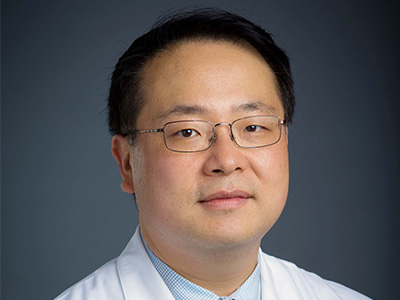The UAB Health Services Foundation General Endowment Fund (HSF-GEF) awarded Do-Yeon Cho, M.D., associate professor of the Department of Otolaryngology and Director of the Smell and Taste Clinic, with funding for his proposal to create state-of-the-art-care for smell and taste loss patients.
The UAB Comprehensive Smell and Taste Clinic is projected to be the first specialized clinic for patients suffering from olfactory dysfunction in the state of Alabama. The clinic aims to provide comprehensive and state-of-the-art care to patients suffering from smell and taste loss.
As the Director of the Smell and Taste Clinic and an associate professor of the Department of Otolaryngology, Do-Yeon Cho, M.D. proposed a clinical care initiative to create a Comprehensive Smell and Taste Clinic to be directed by Cho and his team. The UAHSF General Endowment Fund (GEF) Committee, chaired by UAB’s Dr. Anupam Agarwal, met earlier this fall and recommended funding for four out of eighteen proposed Clinical Care Initiatives.
Postinfectious olfactory disorder has impacted a significant amount of patients who have been infected with the SARS-CoV-2 virus during the pandemic. Officials estimate that over 60% of people who have contracted the virus are affected by this symptom, and current data shows 46% of these patients report extended smell loss. Since the beginning of the pandemic, at least 500,000 people in the state of Alabama have experienced continued smell and taste dysfunction.
After reporting a surge of smell and taste loss patients, UAB recognizes the demand for comprehensive functional tests to measure the magnitude of smell and taste dysfunction in patients.
“We intend to manage these patients with evidence-based treatments and tailored education, thus enhancing the ability to improve outcomes and avert long-term complications,” says Cho in his initial proposal to the HSF-GEF. The program aims to create a centralized clinic that administers comprehensive care for patients afflicted with olfactory dysfunction.
UAB intends to also develop a support group for those affected by olfactory impairment that raises awareness, implements education, and highlights preeminent research priorities based on patients’ perspectives. Furthermore, the clinic endeavors to progress in research and understanding of the financial impact and pathogenesis of smell and taste disorders based upon creating a clinical database and performing cost-benefit analyses. Cho and his team expect that this accumulation of data will permit UAB to secure future funding and undertake new research directions within the field.
“Since the start of the pandemic, Alabama has grown an enormous number of patients with smell and taste loss due to one of the highest infection and lowest vaccination rates in the country,” says Bradford Woodworth, M.D., the interim department chair, “To continue to meet the mission of UAB medicine to provide innovative healthcare, superior education, and cutting-edge research, we need a comprehensive care program that treats individuals with smell and taste disorders.”
The clinic is projected to open at the beginning of 2023.